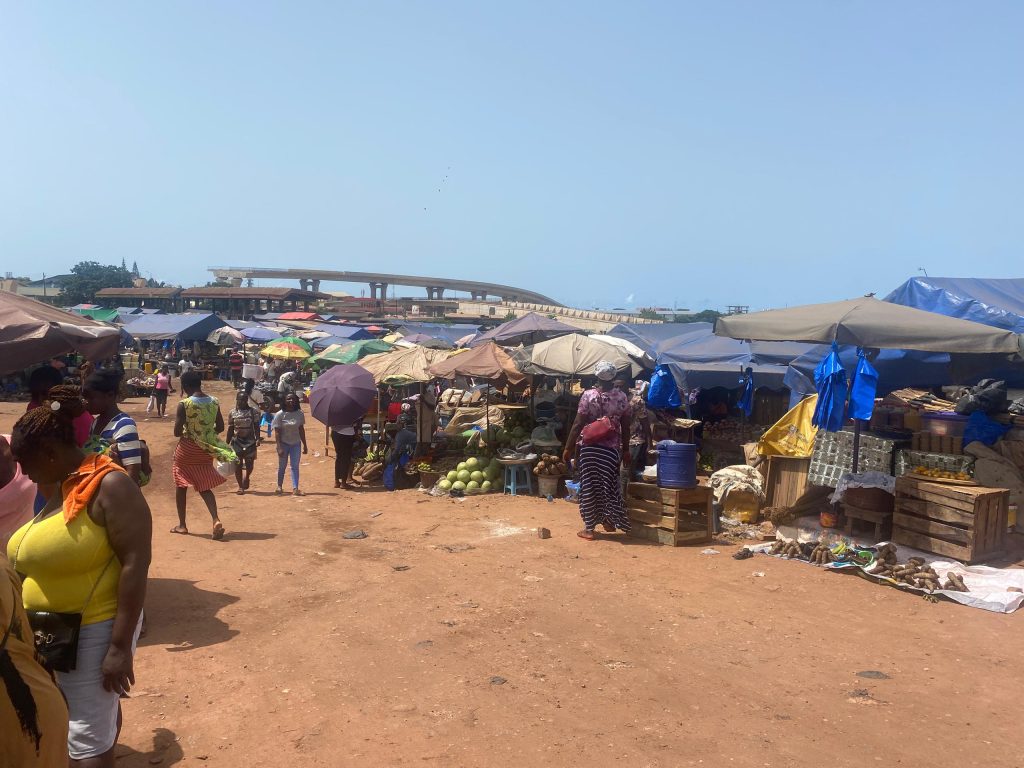The Jubilee Park in Takoradi, long a symbol of civic pride and public gathering, has become the epicentre of intense confrontation as a heavily enforced eviction operation commenced earlier today. Under tight military and police supervision, traders operating from the park were asked to vacate the premises following a directive reportedly sanctioned by the Western Regional Minister, in response to petitions lodged by newly settled market women in the city. This development has not only disrupted commercial activity in the heart of Takoradi but has also ignited fierce debate over urban planning, equitable access to trading spaces, and the clash between formal governance structures and the informal economy.
The eviction process, captured in viral social media videos and corroborated by multiple regional correspondents, paints a picture of both urgency and unrest. Footage circulating online shows uniformed officers overseeing the removal of makeshift stalls and engaging with visibly distressed traders, many of whom have operated from the Jubilee Park for years. According to eye-witness reports and statements made on local platforms, the park was stormed in the early hours by a combined force of military personnel and police officers. The rationale, communicated through informal channels and later echoed in regional political corridors, centres around the need to decongest the park and relocate traders to a designated commercial space that better aligns with Takoradi’s urban renewal ambitions.
This enforcement, however, did not occur in a vacuum. Over the past weeks, a growing chorus of dissent had emerged from market women who had been relocated to new facilities and who have complained of reduced patronage, citing the presence of traders at Jubilee Park as a key obstacle to their economic viability. Their petition, submitted to the Western Regional Coordinating Council and reportedly acknowledged by the Regional Minister, called for the removal of all informal trading activity within the park’s premises. Today’s action appears to be a direct response to those grievances, although questions remain about the procedural fairness and timing of the decision.
What makes this situation particularly fraught is the historical and socio-economic significance of the Jubilee Park. Originally intended as a public space for cultural celebrations, civic parades, and national commemorations, it has, over the years, evolved into a bustling centre for informal commerce. As the population of Takoradi expanded and formal markets became overcrowded or inaccessible, the park emerged as a pragmatic, if unofficial, solution to the city’s commercial overflow. The traders, many of whom are women supporting extended families, view their presence at the park not as an act of defiance but as a necessity in a city where retail space remains both expensive and scarce.
The unfolding events today bring to light the fragile equilibrium between development and displacement. For city authorities, the Jubilee Park eviction is part of a broader urban transformation strategy, an attempt to reclaim public spaces, organise trading activities, and enhance Takoradi’s appeal as a regional capital. Yet for those being removed, the absence of a structured relocation plan, clear communication, or meaningful stakeholder engagement makes the move appear punitive rather than progressive. Public reaction has been swift and divided. On one hand, proponents of the eviction argue that the park’s use as a market undermines its original purpose, contributes to sanitation problems, and poses safety hazards.
They believe enforcement action, especially underpinned by military presence, is necessary to restore order. On the other hand, critics argue that the state’s resort to force over dialogue reflects a disturbing pattern of marginalising the informal sector. They stress that evicting traders without providing credible alternatives only deepens poverty and destabilises household economies. The Regional Minister is said to have granted a two-week grace period to allow for the complete evacuation of the park. Whether this time will be used to initiate a meaningful engagement process or simply serve as a countdown to a full clearance remains to be seen.
Legal observers are also weighing in, suggesting that without a formal notice or court order, the legality of the eviction may be contested by human rights and civil society organisations. In a nation where informal trading contributes significantly to GDP and employs millions, the events at Jubilee Park resonate beyond the confines of Takoradi. They raise difficult questions about inclusivity, economic justice, and the state’s responsibility to balance urban order with social equity. If Takoradi is to serve as a model for modern Ghanaian cities, then its response to such flashpoints must reflect both administrative competence and humane governance.
As tensions simmer, it remains to be seen whether this eviction exercise will spark a wave of resistance, elicit policy reversals, or become another footnote in the complex story of Ghana’s urban evolution. What is certain, however, is that Jubilee Park has become more than a public square; it is now a battleground for competing visions of space, dignity, and survival.

